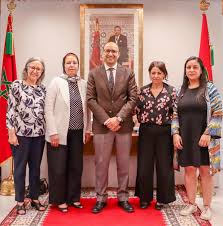
A new advocacy campaign has been launched in Morocco to confront the growing problem of online harassment against women, an issue campaigners say has been overlooked for too long.
Three associations—Kif Mama Kif Baba, Médias et Cultures (AMC), and the Democratic Association of Moroccan Women (ADFM)—have united to launch Mamhkoumch (“We Will Not Silence”), a nationwide initiative designed to raise awareness of technology-facilitated gender-based violence.
The statistics reveal the scale of the problem. According to the High Commission for Planning, nearly 1.5 million Moroccan women have already suffered cyberviolence.
Other studies suggest that 58% of women have experienced some form of online harassment. Alarmingly, one in three cases eventually spills over into real life, moving beyond screens and into public spaces.
Activists warn that digital abuse—including cyberbullying, identity theft, “doxxing,” and the non-consensual sharing of intimate images—should not be dismissed as merely virtual attacks. Instead, they argue, such acts represent direct threats to women’s dignity and safety.
The Mamhkoumch campaign, launched on 25 September 2025, will run online from 2 to 10 October through videos, survivor testimonies, and striking visuals. Its organisers say the aim is not only to educate the public but also to push policymakers to act.
The associations are demanding reforms to Morocco’s penal code to explicitly cover digital violence, better training for police and magistrates handling cybercrime complaints, and improved, accessible reporting channels for victims. They are also calling on major digital platforms to take greater responsibility by moderating violent content and working with Moroccan authorities.
Campaigners argue that beyond individual harm, online abuse threatens women’s participation in the public sphere, forcing many to withdraw from social media or censor themselves. By amplifying women’s voices, Mamhkoumch seeks to prove that resistance is possible—and that concrete reforms can turn outrage into change.
If successful, the initiative could mark a turning point for women’s equality and digital rights in Morocco.



